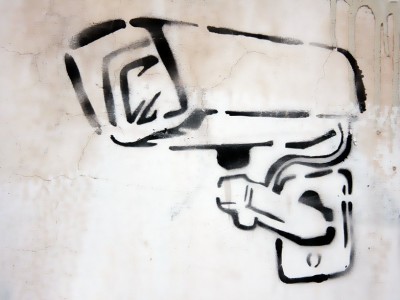Once again this year, the Lebanese government strikes again (the first incident was couple of months ago) by arresting Naim George Hanna, 27, Antoine Youssef Ramya, 29, and Shebel Rajeh Qassab, 27, for posting Facebook statuses against the Lebanese President Michel Suleiman. And along with the new e-transactions draft law dilemma, the Lebanese online community is outraged because of the invasion of their cyberspace. Here are some of their reactions to the arrests:
Lebanese blogger and journalist Hanibaael wrote in his post entitled “So you won't be next!! Move!“(Ar):
لن يستطيع حكم الديناصورات قمع الحريات العامة، ولن تستطيع أية جهة إن كانت سياسيّة أم امنيّة من منع أي كان من التعبير عن رأيه بما يشاء. وكي لا يتحوّل لبنان إلى سجن عربي جديد، ستستمر الاحتجاجات ضد القمع. هذه اولى الخطوات.. وتحركاتنا ستتصاعد طالما الحريات تنتهك!
Lebanese blogger Tony commented on the arrests, saying(Ar):
وأخيراً، بغضّ النظر عن كل النقاشات الفرعية حول هذه المسألة، يجب على كل الناشطين الحقوقيين والسياسيين والمدنيين أن يدركوا أهمية الرفض التام لإخضاع الفضاء الالكتروني لأي نوع من أنواع الرقابة والملاحقة فيما يتعلّق بحرية التعبير. الفضاء الالكتروني هو مساحة خاصة، عالمية وحرّة غير خاضعة لسلطات الدول ولا لأهواء الديناصورات الآتية من القرون الماضية، وهو أيضاً أحد أفعل الأدوات اليوم في بناء الوعي الثقافي والاجتماعي والسياسي للمواطنين، لذلك يجب الحفاظ عليه خالٍ من حكم الديناصورات.
Lebanese blogger finkployd wrote a letter to the President asking him about the other serious issues in the country:
Dear Mr. President,
It is unfortunate, on so many levels, that 3+ people have been arrested for insulting you on Facebook.And that the Minister of Justice Ibrahim Najjar has defended and encouraged the arrests.
And that the media uproar is at most tepid.
And that you have not intervened to right the wrongs that have been committed.
This at a time when:
- forest fires are raging
– Saida's landfill stands tall
– israeli planes are buzzing
– israeli spies are running amok
– traffic accident fatalities are soaring
[…]
The reactions to this letter were mixed. One of the readers turned the letter to an e-petition for the online community to sign, and another one only said:
You just can't go around insulting people.
Blogger Mustapha, who writes at Beirut Spring, wondered if the letter will reach the President the way the insults did. He said:
[…] what makes you think that the same handlers are going to pass on your letters to the President?
Surprisingly, the administrators of the President's Facebook page posted an announcement about what happened saying that “There's a huge difference between freedom of speech and freedom of defamation against our President“[Ar]:
والاخطر هو التضليل الإعلامي الذي تقوم به محطة تلفزيونية وبعض النواب، عندما يظهرون صور صفحة فيسبوك أخرى، ويدعون أنهم أولاد، بينما أنهم راشدون واحدهم له سابق إجرامي، ويقولون أنهم قاموا فقط بإعطاء نصائح للرئيس. هل هي نصيحة عندما تقول عن أي شخص (وبالأخص إن كان رئيس بلدنا العزيز، هو المعروف بالتسامح ورحب صدره وطيبته، وعدم الرد على مهاجميه) “بتسوى اجري” و “يا واطي” و “يا عنصري” ويا حية” ؟؟؟
The three men have been released for now, and Lebanese blogger Assaad wrote a detailed post[Ar] about the whole incident and considered their release a victory for the civil society:
تمّ إخلاء سبيل الشباب الثلاثة على أن يمثلوا أمام محكمة في الأيام القادمة. إعتبر المجتمع المدني أنّه قد نجح في صد النظام المخابراتي من التوغل في العمق الإلكتروني وكم مفاتيح الكومبيوتر الناطقة بآراء الشباب.
It might be a momentary victory for the Lebanese online community. But will it last? Will Lebanon have more threatened voices?




6 comments